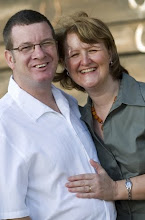
It is much more peaceful in Kampala today, since the Kabaka (King), Ronald Muwenda Mutebi II, decided against his preferred intention, to go to Kayunga. He has only postponed, not cancelled his planned visit. So, what did cause the recent eruption of violence in the city of Kampala?
The problem is complicated. Basically, it is a clash of powers between the cultural leaders of a major people group, the Baganda, and Uganda’s central government. The presenting issue is one of security, when the safety of the Kabaka is deemed to be under threat, due to his planned visit to a sub-people group of Buganda, called Banyala, who no longer want to be subject to the King's rule. The Kabaka insists on going to survey this part of his kingdom, but the government says he cannot go due to safety risks. The Banyala are said to be ready with pangas/machetes for his visit (a multi-purpose 12-inch knife). The president ordered a military road block to stop entry to the area by a Buganda delegation earlier this week (one day before the riots). This is considered to be heavy-handed, since they would prefer a security escort, rather than a blockade. It also rubs salt into the festering, prideful wound of subordination that the Kabaka and his rulers are nursing. People came to Kampala and started protesting against this impingement upon their considered right to freedom of movement; most especially that of the King’s movement among his people.
The contention for the Central Government is that the various Kings and their Kingdoms in Uganda are not supposed to have any political ambitions. The constitution established in 1995 has a specific entry preventing cultural leaders from pursuing political ambitions. It was intended to save the country from future chaos similar to that ensued in the early days of independence, when there was a serious clash between president Obote and the Kabaka, Muteesa II, leading to the king’s exile to Britain. These “cultural” kingdoms were only re-introduced in 1993, since those problems in 1967. Cultural leaders were consulted when drafting the constitution and consented to this principal at the time. Kings are simply not allowed to get involved in political matters (according to the 1995 constitution, section, 246, 3 (f)). The Kingdom’s media house, CBS (Central Broadcasting Service) is renowned for being outspoken against the president of Uganda and was shut-down this week for inciting the protests.
Despite Buganda’s political restrictions, the kingdom has its own sub-system of government, directly related to land management throughout the kingdom. They have a parliament in which sit representatives from their 56 clans. It is a huge geographical area they claim dominion over. There is also a long-standing demand by the Buganda kingdom for “Federo”, or the creation of a federal state system of government (like Nigeria). The King and his kingdom have political ambitions for self-autonomous rule and this incident heightens the disagreement and serves an opportunity for the Central Government to be undermined by the instability; justifying their wish for a change of rule. Another problem is that the capital city sits within the Buganda kingdom and they claim the right to rule the city.
Riots are being carried out by disgruntled, poor young adults who have a reason to fight and little political motive, but who conveniently serve the purposes of Big Men. There could be other hidden factions (such as an opposition party) stirring the pot and arousing violence, in order to destabilize the city and undermine the government’s ability to rule, and accelerate their own political intentions. Democracy is certainly not in the minds of the perpetrators of violence, who prefer the baton, stones, bullets and burning rubber to the functional ballot box, where the choice of leadership should rightly be made.
From a biblical point of view, this is an example of “spiritual forces of wickedness in heavenly places” (Ephesians 6:13) working behind the scenes to manipulate society towards conflict, chaos and all manner of evil. Clearly a destabilized society gives room for anyone with a score to settle to hijack the opportunity to carry out violent and murderous acts behind the scenes. Politics is never simple, and power is the pursuit of the wicked in all camps.
Let the righteous stand up, since God’s “intent was that now, through the Church, the manifold wisdom of God should be made known to the rulers and authorities in the heavenly realms, according to his eternal purpose which he accomplished in Christ Jesus our Lord.” (Ephesians 3:10f).
We pray that the King of Kings will intervene according to his higher purposes. Certainly He will rule in the long run and the wicked at all levels will get their just deserts, whether in this life or the next. Without repentance and submission to THE KING, there is no remission for such sins. In the meantime, the undermining of those who lead this nation is not God’s will, since “everyone must submit himself to the governing authorities, for there is no authority except that which God has established. The authorities that exist have been established by God. Consequently, he who rebels against the authority is rebelling against what God has instituted, and those who do so will bring judgement on themselves. For rulers hold no terror for those who do right, but those who do wrong.” (Romans 13:1-3). If the Roman Empire with its iron-handed leadership and military brutality was believed to be appointed by God, what about the present Ugandan Government? Should we not be in prayer “for kings and all those in authority”, not in partisan fashion, but “that we may live peaceful and quiet lives in all godliness and holiness. This is good, and pleases God our Saviour, who wants all men to be saved and to come to a knowledge of the truth. For there is one God and one mediator between God and men, the man Christ Jesus.” (1 Timothy 2:2-5)?
.jpg)
No comments:
Post a Comment